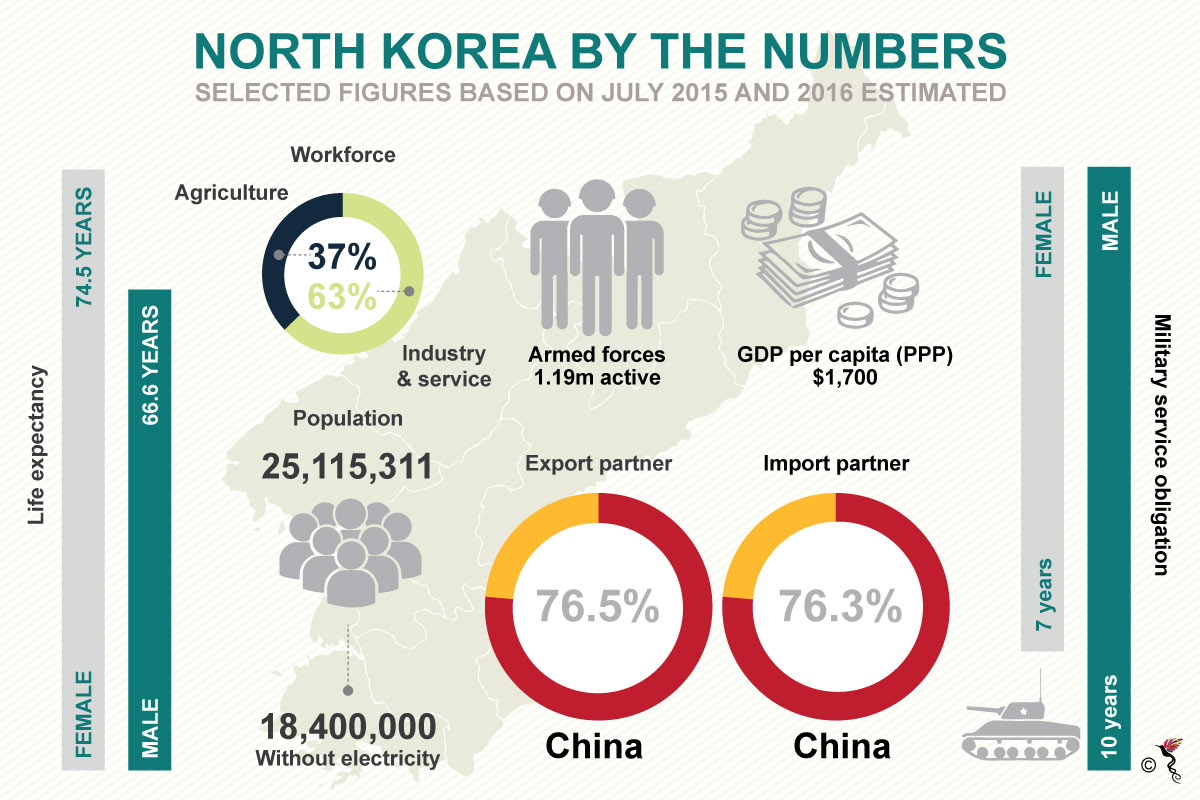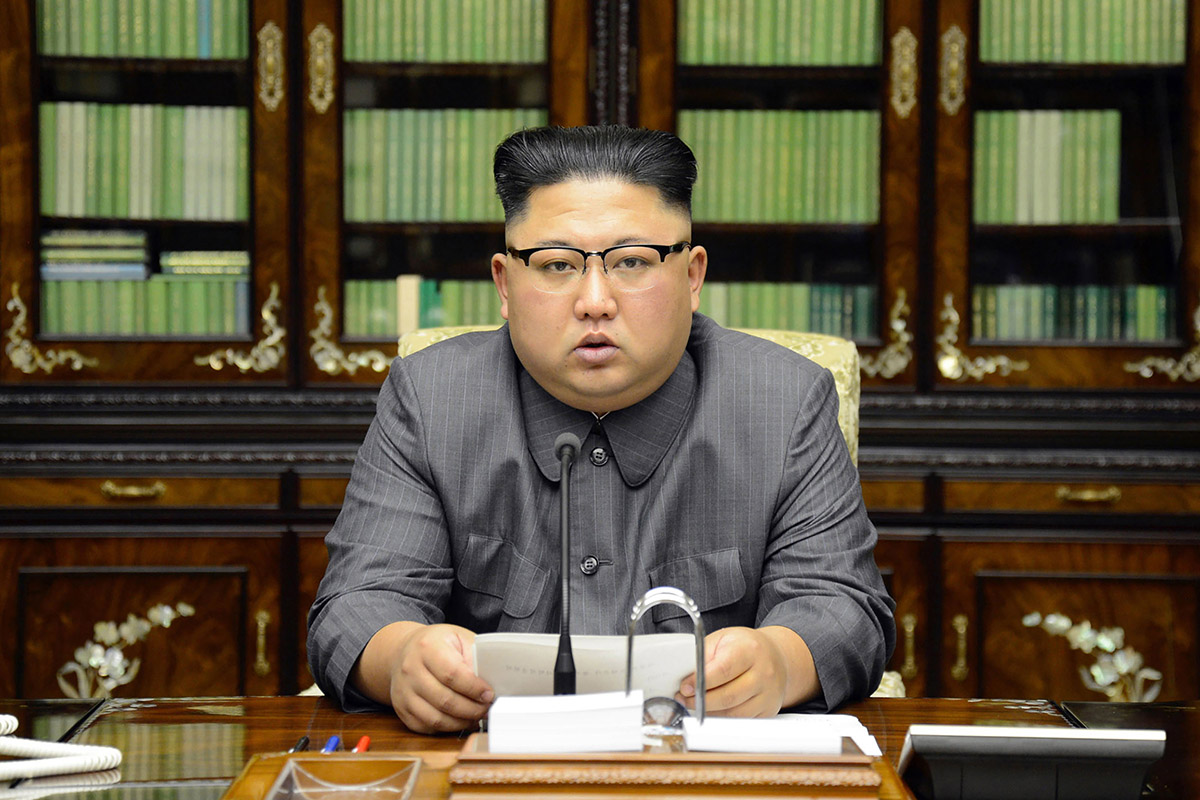Pyongyang’s recent flurry of missile tests have sent shockwaves throughout the world. The recent intercontinental ballistic missile (ICBM) test is said to be able to reach the continental United States.
The response of the international community has been a mix of shock and disdain towards the hermit kingdom. Although US President Donald Trump has been “trigger happy” – teasing the prospects of military retaliation on Twitter – his Secretary of State, Rex Tillerson sings a different tune, touting diplomacy as the primary mode of defusing nuclear tensions.
But bringing the belligerent North to the talking table is no easy feat. A previous attempt – the Six Party Talks between Japan, the US, China, North Korea, South Korea and Russia tried and failed spectacularly. The next best option – widely employed by the US and its allies – is sanctions.
The motive for sanctions are easily understood. Hurt North Korea where it hurts most – its economy.
China has accepted a series of UN sanctions against Pyongyang but has so far resisted calls to shut a crude oil pipeline considered crucial to North Korea's economy.
The UN Security Council had ordered countries to stop providing guest work permits to North Koreans after Pyongyang's sixth nuclear test in September.
The ban impacts an estimated 100,000 North Koreans who send some $500 million in wages back to the regime.
Southeast Asian nations have enjoyed relatively warm relations with the isolated state. However, they are also increasingly pressured to sanction North Korea – the latest being Thailand.
"The US asked Thailand to put more pressure on North Korea, put more trade and diplomatic pressure,“ General Wanlop Rugsanoah, secretary general of Thailand's National Security Council, told Agence France Presse (AFP) after his sit-down with US special envoy for North Korea Joseph Yun, who arrived in Bangkok Wednesday evening for a two-day trip to the kingdom.
He stressed that Bangkok had already significantly reduced its trade volume with Pyongyang – down to around 1.5 million dollars a year – and would curtail visas to North Korean citizens.
Thailand, one of America's oldest allies in the region, is one of several Southeast Asian countries to host a North Korean embassy, and once enjoyed valuable economic ties with the reclusive regime.
In August, US Secretary of State Rex Tillerson stopped in Bangkok to pressure the government to crack down on North Korean shell companies that use the Thai capital as a trading hub.
Thailand said this week it had drastically slashed trade with North Korea this year, down 94 percent compared with 2016.
Yun's visit is part of a December 11-15 trip to Asia – including a stop in Japan – "to discuss ways to strengthen the pressure campaign following the DPRK's latest ballistic missile test," the US State Department said.

North Korea by the numbers (Source: Statista)
Japan has also been tightening the noose around Pyongyang’s economic neck.
Tokyo said Friday it had added 19 more entities to its list of organisations and individuals targeted by asset-freeze sanctions on North Korea.
The sanctions list now comprises 103 entities and 108 individuals in total, including seven Chinese entities, five Chinese individuals, one Singaporean entity and two Namibian entities, it said.
They include organisations involved in financial services, coal and minerals trading, transportation and sending North Korean labourers abroad, the foreign ministry said in a statement.
Japan has already imposed strict sanctions on North Korea, including a blanket ban on trade and port calls.
Top government spokesman Yoshihide Suga said: "North Korea launched an ICBM ballistic missile that landed in our exclusive economic zone and continues to repeat provocative commentaries.
"In light of this, as we host a ministerial meeting of the UN Security Council on December 15, we have decided on the asset freeze in order to further increase pressure" on the reclusive state.
However, sanctions don’t seem to have a palpable effect on Pyongyang’s resilience to continue with their nuclear program. If anything, it seems to inspire them even more.
According to Associate Research Fellow at the S. Rajaratnam School of International Studies, Henrick Tsjeng, in an email response to The ASEAN Post, the recent missile and nuclear tests by the North show that it will not back down.
“The missile, the Hwasong-15, flew on a trajectory longer than previous missiles launches. International sanctions have been imposed on North Korea for years, yet North Korea has managed to develop its missile and nuclear capabilities,” he said in reference to the latest ICBM launched by Kim Jong-Un’s regime.
Echoing his sentiment, Bernard Loo Fook Weng, Associate Professor of the Military Studies Program at the S. Rajaratnam School of International Studies opined to The ASEAN Post that sanctions are likely to strengthen Kim Jong-Un’s as he continues to maintain the hard-line stance.
“Given his previous record, Kim Jong-Un cannot, in my opinion, afford to back down or he will lose all international credibility. If he loses that, then he loses any leverage he has to negotiate a suitable solution to North Korea’s manifold problems,” he said.
Given that the sanctions which continue to be slapped on Pyongyang seem to not halt their ambitions, its time to go back to the drawing board and rethink a new strategy to denuclearise the Korean Peninsula.
Additional reporting by Agence France Presse (AFP)
Recommended stories:
